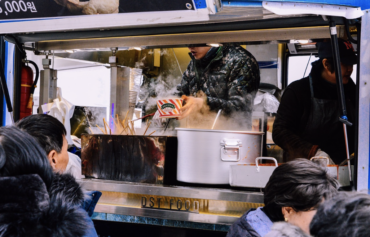
[Excerpt]
“July delivered an irrefutable argument about the extent of climate change: A recent analysis suggests that 81% of the Earth’s population lives in places that experienced extreme heat attributable to global warming sometime during the month. Extreme heat is not just uncomfortable; it can be debilitating, and even deadly.
However, these effects aren’t felt equally. Many people labor under conditions of extreme heat — sorting boxes in sweltering warehouses, delivering packages or working in fields — so that others don’t have to. This is thermal inequality: the idea that the negative effects of heat are distributed unequally and in ways that can exacerbate other forms of inequality, including those that harm human health.
Thermal inequality can be hard to notice. But once you start paying attention, it’s even harder to miss. At UCLA we found it close to home. When our dining halls were closed due to the COVID-19 pandemic, food trucks became an important way for students to get fed while limiting close indoor contact. Our research team became interested in the thermal experiences of the people who work in those trucks.”
Op-ed authors Sofia Sabra, Jason Sutedja and Olivia Toledo are members of the UCLA Heat Lab, which is directed by Bharat Jayram Venkat, an associate professor at UCLA’s Institute for Society & Genetics and in the history and anthropology departments.
